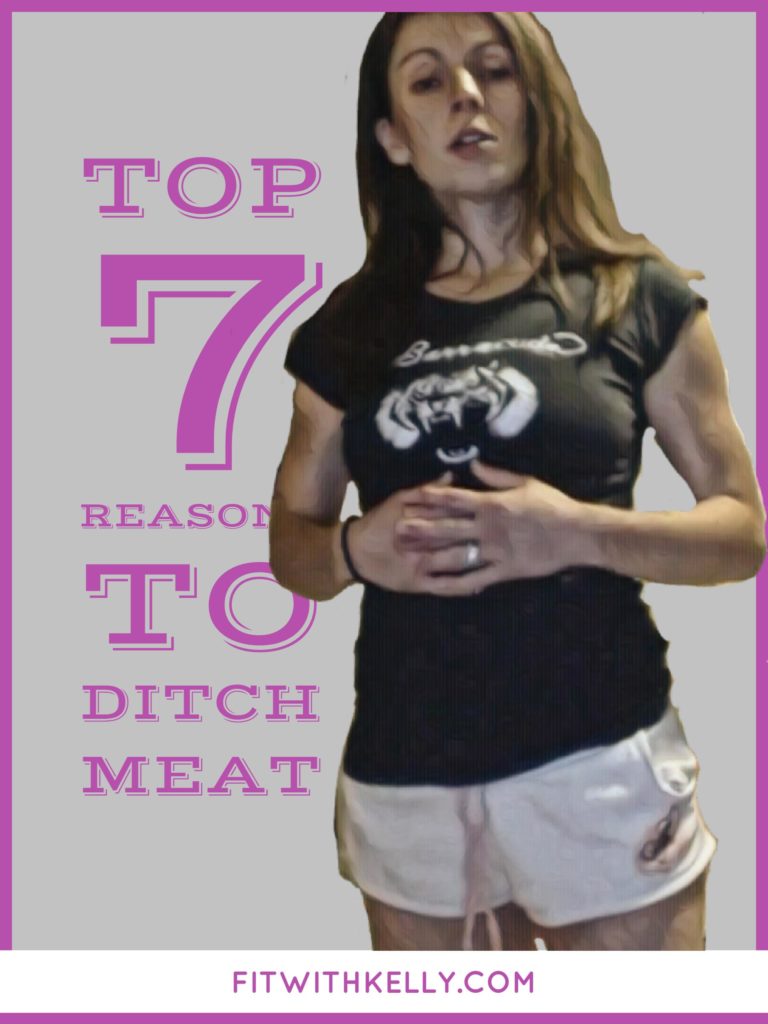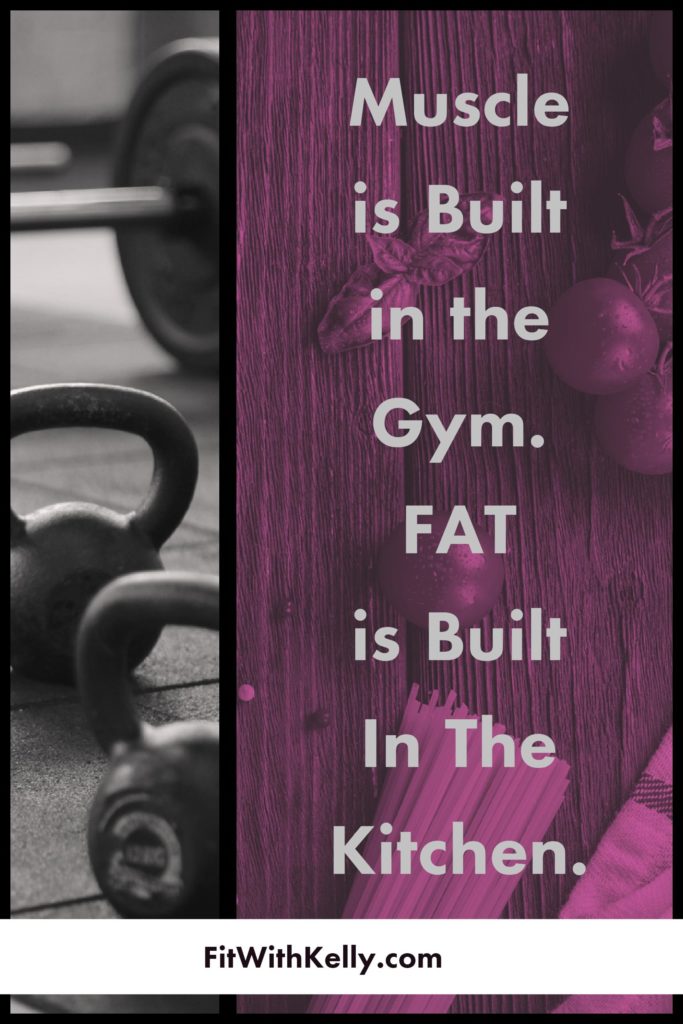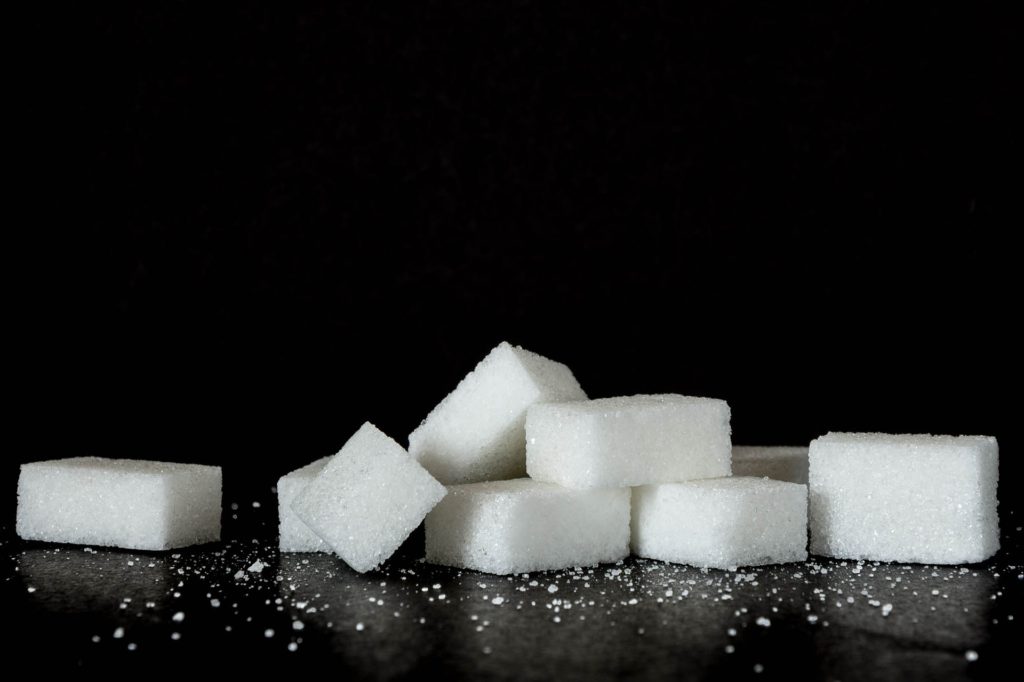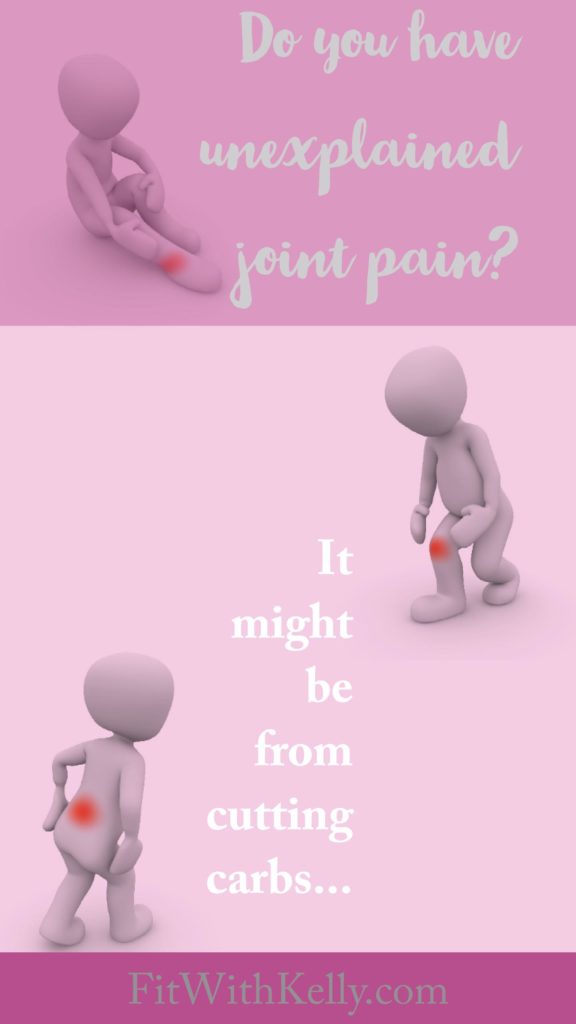Top 7 Reasons to Ditch Meat
You might ask yourself "should I eat meat to be healthy?" Well, technically yes, you need meat on your bones to be healthy and to sustain life. ;) But do you need to EAT meat from animals to have meat on your own bones? Not so much. I get it, I get it. You're thinking... "great, another vegan trying to tell me that I don't need meat." It might drive you crazy to think that! Well, to clarify I'm not speaking about ethics today, regardless of what my personal beliefs are there have been numerous scientific studies to show the effects of eating meat on the human body, and it's not pretty. I'm just going to touch on the surface in this article about what nutrients are in meat and what that can mean for our weight loss goals and overall health. When people hear the word "meat" they instantly think of the words PROTEIN or HEALTHY because our entire lives that is what we have been taught to believe about meat. Sure you can obtain a heavy dose of protein and essential vitamins from meat, and you can even lose weight by restricting sugar, calories, and other processed foods while on a meat-based diet. Yes, I am actually a vegan who can think outside the box! I have seen plenty of fit meat-eaters and it would be wrong of me to say that meat makes everyone fat.

Take a look at the top 7 reasons to ditch meat and you may reconsider your meat-eating habits...
Time to answer your question about whether or not you should eat meat. Here's what I have discovered about that 4-letter word:
- Cholesterol: Meat is high in cholesterol, and not the good kind. One steak (308g) constitutes 278mg of cholesterol. High LDL cholesterol can cause increase blood pressure and cause atherosclerosis which leads to heart disease. The truth is, cholesterol is not an essential dietary nutrient because our bodies produce healthy levels of cholesterol without food. Has your doctor ever told you to raise their cholesterol? Doubtful, so don’t worry about it being too low. Vegans average an overall cholesterol level of 133, while omnivores have levels of 200+.
- Fats: Meat is extremely high in saturated fats, which are different than plant fats (or oils) because animal fat becomes solid at room temperature. These types of fat can increase cholesterol in the blood and increase risk of stroke and heart disease. Studies show that vegans are 33% less likely than omnivores to have a heart attack.
- Calories: Meat is very dense in calories, meaning there is a smaller volume of food per 100 grams (~3.5oz). So one serving of meat is roughly 142 calories, but which makes it quite easy to overeat. Typically it takes the brain 20 minutes to send signals to your body that indicate you are full and satiated. If it takes 5 minutes to eat a 250 calorie beef dog or burger, you might be in trouble and have enough time to eat up to 4X as many calories as your body needs before you start to “feel” full. If this isn't enough reason to ditch meat, keep reading.
- Carbohydrates: Meat contains minimal carbs, and that’s a bummer because carbs fuel our brains! Ever feel groggy or tired after a meaty meal? You could benefit from plant-based carbs for energy.
- Proteins: The amount of protein in meat is much higher than our bodies can handle in the longrun. Extra protein builds up and causes kidney stones. If left untreated then it can result in kidney failure.
- Fiber: Meat contains no fiber, I mean a whopping ZERO grams per million calories, which means you’ll probably get constipated if you don’t eat loads of fibrous vegetables or take psyllium husk supplements to make up for it. Eating a high-fiber diet of at least 25g for women and 38g for men is recommended for proper digestion and overall health. Too little fiber can cause constipation and chronic diseases.
- Digestion: Meat grows bacteria, which can cause e. coli infections and awful digestive issues. When is the last time you got excited about diarrhea? Right. Just say NO to meat.
What you could ask yourself is, "is it worth it to put your health at risk in order to keep eating meat?" Despite what the Paleo or Keto diet trends have been saying, there is plenty of evidence that has debunked the myth that eating meat is healthy and essential for our survival. Despite popular belief, meat does not convert to meat on your bones. Protein breaks down into amino acids before converted to muscle and can also be converted to fat, excreted in the urine, or build up to form kidney stones. So, unless you are working out and strength training, protein is not going to convert to muscle! I'll say it again - protein breaks down into amino acids before ever becoming muscle. "Muscles are built in the gym, and FAT is built in the kitchen" is a good way to look at it. ;)

Now that you know at least 7 reasons to ditch meat, will you? You might be thinking “but it tastes so good!” and “I need my protein!” Don’t worry, there are plenty of delicious plant-based proteins you can have instead. In fact, most plant-based foods contain at least 8% of its calories from protein. Fruits have the lowest protein content (between 5-8% usually), while green leafy vegetables, beans, nuts and seeds have up to 50% protein content (like spinach and mushrooms). There is a wide variety of plant based proteins, even high-protein plant-based foods, which gives more than enough reasons to ditch meat. So if you've been wondering "do I need meat to survive?" The answer is a big fat NO. I hope you enjoyed this post. Please share and send me a message if you have any questions about it.
References:
1. Certified Level 1 Nutrition Coach by Precision Nutrition. The Essentials of Sports & Fitness Nutrition: Certification Manual, 2nd Edition. by John Berardi PhD and Ryan Andrews MS
2. American Heart Association http://circ.ahajournals.org/content/102/18/2284
3. MyFitnessPal http://www.myfitnesspal.com/food/calories/340152145
4. PETA https://prime.peta.org/2015/05/should-you-still-be-concerned-about-cholesterol
5. Health & Medicine http://healamed.com/health/diet-weight-loss/48-risk-of-heart-disease-33-lower-in-vegetarians-than-non-vegetarians.html
6. USDA https://ndb.nal.usda.gov/ndb/search/list?qlookup=23197
Need Help Reducing your Meat Intake? Book a Nutrition Evaluation today.
Subscribe to get new articles via email!





